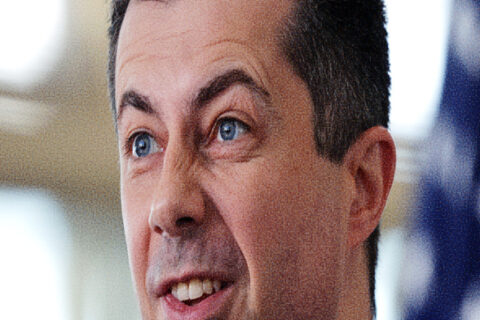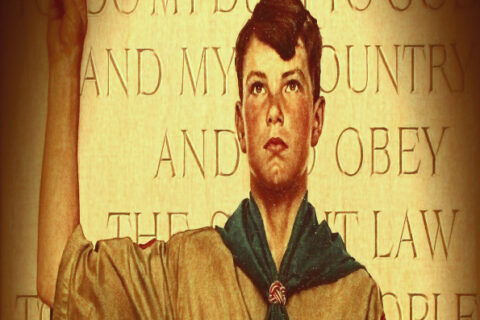Everest experienced an awful year for deaths this climbing season. Over ten perished making the trek to the summit. This is not new, as Everest previously unleashed mass death in prior seasons. Famously, the 1996 tragedy on Everest was described in great detail by author Jon Krakauer in his book, Into Thin Air. What has happened to make Everest such a weird piece of global travel and adventure? Like all other examples of fun or adventure, climbing Everest has become a packaged experience to sell to those who can pay.
Quick Google searches will send you to multiple companies that are designed to get you to the top of the mountain to say you climbed Everest and made it to the top of the world. These packages range from $30,000 to well over $100,000. Some have requirements for your climbing abilities. No one wants a repeat of the ’96 tragedy, which Krakauer documented as a bit of guides pushing it for their clients and a bit of inexperienced climbers trying to summit Everest.
Why were they trying? Everest has been climbed. Sir Edmund Hillary reached Everest’s summit in 1953 with his Sherpa. This was daring with none of the set ladders and pathways blazed like today. Sir Hillary’s achievement was a 20th century example of the Faustian drive. Everest was the highest summit and therefore, it was a challenge. In a coincidence of Faustian achievements, Roger Bannister broke the four minute mile barrier within twelve months of Hillary’s summit. They are twin achievements in essence. There are no high mountains to climb. There is no physical hopes of breaking a three minute mile.
That leads us to where we are. These were achievements, and being the man who finally climbed Everest, was an achievement to boost status. It was not just for Hillary but for New Zealand. Culturally, Everest is used to signify the difficulty of a task. This is gone now though, as we assigned so much status to the accomplishment that it made it possible to monetize it. For as little as $30,000, someone can claim to have climbed Everest.
It is a racket. Everest is an industry. The packages can make sure you get the Everest experience… tailored to your vision of Everest of course! There are packages that make sure wifi is available and the comforts of home. Others are more roughing it and authentic Everest climbs. Maybe you want to drink yak piss. Maybe you want to not feel you are in base camp at the foot of the earth’s peak. All of it can be yours. Documentaries get linked up with climbers and therefore, the first Lebanese woman to summit Everest is filmed. Just enough fundraising can help charities send someone to Everest.
It is not just Everest but every travel adventure experience has been market tested, assembled and sold to people to buy to fit their personality. Ever want to hike Amerindian ruins in South America, visit a shaman and try weird herbs to commune with visions? There is a package for that. Some want an authentic, rougher experience and others want the spa days in between hiking. Worry not dear reader, your girlfriend’s favorite celebrity on Instagram just happens to take the exact trip that appeals to your girlfriend and tags the company in her posts from that week.
The counter to these people buying packaged experiences is to deny them the status bump. Make sure they know that you know it is a sham. They are not Sir Hillary. Others can know this, too. This does not apply only to Everest climbers. The true Faustian drive is there for others to feel and answer its call. Climbing documentaries give us examples. Free Solo and The Dawn Wall allow viewers a vision of this spirit still alive.

Free Solo covers the first Alex Honnold’s ascent as the first free solo climb without protective gear of El Capitan. The autism detection will go off listening to Honnold. One can imagine how this would appeal to that type of spergy mind. Hyper focus, research, repetition, geometry, and great visualization skills. Honnold wants to do it because no one else has. There is a high level of danger, which the film expresses by clearly showing other free climbers that have perished. It is the rush and the challenge that pushes them on, which Honnold recognizes is not for everyone.
While Tommy Caldwell appears in Free Solo, he is the star subject of The Dawn Wall. Caldwell’s story is incredible as a boy raised to climb with his dad. In a plot point too hokey for Disney, he wins an amateur event, and then when he returns the next day to watch the professionals, they invite him to try to climb with them. Caldwell wins. It sets off a career of amazing achievements and comebacks from setbacks that would sideline a normal person.
Caldwell’s career becomes the ultimate example of taking on challenge after challenge simply because they are there. His last is free climbing the dawn wall. A New York Timesreporter calls him during the nineteen day climb and asks why, and he does not really have a good answer. How does one express that innate drive to seek new horizons and challenges when they are absolutely unnecessary.
The Faustian spirit will never die. It cannot even be commercialized and packaged appropriately. Climbing Everest as Sir Hillary did is an achievement. Paying a fee to have a guide take you up the escalator on Everest is buying something to brag about to your social circle. Commercializing Everest is more an indictment on the society that we live in today. Everest is not respected, but is treated like a washed up old former cheerleader that losers always dreamed of sleeping with and, for $150 an hour, finally get their chance.
That so many throw their money at this opportunity to climb Everest and to do so in such a phony, commercial manner says more about our status system and our slick economic system. This is a system that has lost its way. It now only sells facsimiles of the originals. When the Faustian man within you speaks, answer the call, just don’t buy something to pacify it.
-By Fred Watson Jr and originally published at The American Sun

O I’m a good old rebel, now that’s just what I am. For this “fair land of freedom” I do not care at all. I’m glad I fit against it, I only wish we’d won, And I don’t want no pardon for anything I done.




